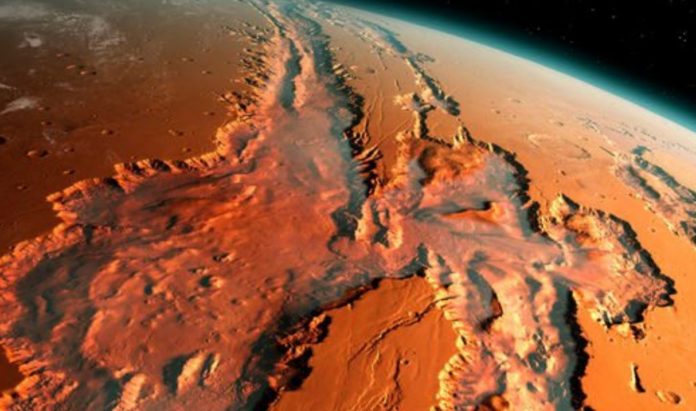According to the expert, who is in search of alien life on Mars, believes that microbes could have moved underground over the last four billion years.
In a recent study published by Nature Astronomy, Prof Nathalie Cabrol, director of the Carl Sagan Centre for Research collaborating with Search for Extraterrestrial Intelligence (SETI) Institute, suggested that microbial biosphere could be on the red planet and microbes could have found good living conditions underground over the last four billion years.
The study was based on “Mars analogues”, an environment that is cold and inhospitable like Antarctica.
- Does This Mean We Stopped Being Animal and Started Being Human Due to ‘Copy Paste’ Errors?
- The One Lifestyle Choice That Could Reduce Your Heart Disease Risk By More Than 22%
- Aging: This Is What Happens Inside Your Body Right After Exercise
- Immune-Boosting Drink that Mimics Fasting to Reduce Fat – Scientists ‘Were Surprised’ By New Findings
- Gun Violence in America: What They Don’t Talk About at the Debate
Her research suggests landscapes which appear to be void of habitation could support life – and that extreme environmental factors such as a thin atmosphere, UV radiation, salinity, aridity and temperature fluctuations help create the conditions for life.
The interaction of these factors “unlocks life’s distribution and abundance in those landscapes”, according to Prof Cabrol.
While “that does not necessarily make it easier to find” evidence, Prof Cabrol said observing these factors could help in the search for life on Mars.
She then suggested Mars could have hosted rivers, oceans, wind and dust storms around 3.6 billion years ago.
She said: “Dispersal mechanisms still exist today, and they connect the deep interior to the subsurface.”
However, Prof Cabrol warns there is a “deadline” for collecting samples from Mars as human explorations start being planned.
NASA’s Perseverance rover has been on Mars for over a month, and has not yet found signs of life.
However, team scientists have determined that several of the rocks are chemically similar to volcanic rocks on Earth, and that wind and water have eroded some of them.
Kenneth Farley, geochemist at the California Institute of Technology in Pasadena and the mission’s project scientist, added: “Everything is going great so far.”
- Does This Mean We Stopped Being Animal and Started Being Human Due to ‘Copy Paste’ Errors?
- The One Lifestyle Choice That Could Reduce Your Heart Disease Risk By More Than 22%
- Aging: This Is What Happens Inside Your Body Right After Exercise
- Immune-Boosting Drink that Mimics Fasting to Reduce Fat – Scientists ‘Were Surprised’ By New Findings
- Gun Violence in America: What They Don’t Talk About at the Debate
During its mission, Perseverance will collect approximately 30 tubes full of Martian rock and soil, laying them down on the Martian surface for a future mission to retrieve and fly back to Earth for scientists to analyse.
